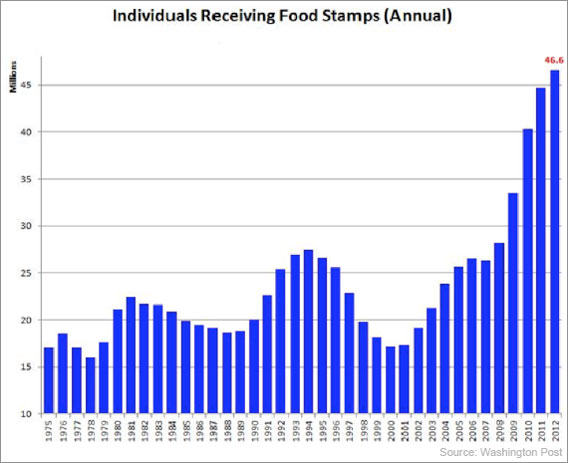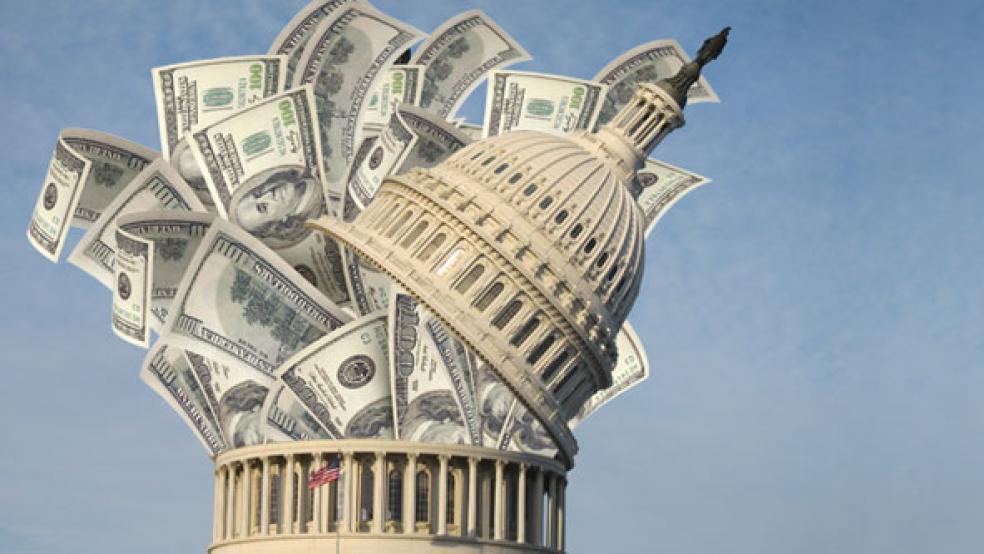After a year of pent up federal spending decisions, we're about to witness a $2 trillion deluge of budget action in a matter of weeks.
Even before President Obama delivers his State of the Union message later this month, Congress must pass a massive $1 trillion omnibus spending bill to keep the government operating throughout fiscal 2014, resolve partisan differences over agriculture and food stamps funding, and attempt to extend for another three months long term unemployment insurance that expired Dec. 28.
Related: The Other Political ‘Odd Couple’ Could Stir Things Up
Typically, members of Congress will be asked to vote on these complex and highly detailed issues under tight deadlines with at best a passing familiarity with the issues – and certainly no time to actually read the legislation.
Leaders of the House and Senate agriculture committees plan to announce next week an agreement on a new multi-year farm and nutrition bill that would cut about $9 billion in funding for food stamps over the coming decade, according to the Washington Post.

The spending reduction in food stamps -- or the Supplemental Nutrition Assistance Program (SNAP) -- is a compromise between the $4 billion in savings favored by the Democratic Senate Agriculture Committee and the whopping $40 billion in cuts initially demanded by the GOP-controlled House.
The high profile battle over food stamp spending delayed completion of compromise farm legislation by months. Sen. Tom Harkin (D-IA), a long-time advocate for the poor, said in a statement that "compared to the draconian cuts" sought by House Republicans, the negotiated compromise is "a dramatic improvement."
Related: Fight Over Food Stamps in a Nearly $1 Trillion Farm Bill
There are still differences to be ironed out over price controls on the nation’s dairy industry. But in the end, Congress finally appears on the verge of major new farm and food stamp legislation that would cost well in excess of $900 billion over the next ten years.
In May 2013, the Congressional Budget Office projected that the current farm bill programs, if they were to continue beyond the 2008, would cost $973 billion over a decade. About $764 billion of this amount would go for nutrition programs and the other $208 billion would be divided among various agriculture-related support programs.
Related: ‘King Coal’ Politics Could Derail Spending Bill
Meanwhile, top House and Senate Republican and Democratic appropriations committee leaders have been working round the clock to convert a bipartisan budget deal negotiated by Rep. Paul Ryan (R-WI) and Sen. Patty Murray (D-WA), into the spending measures essential to operating government agencies and programs. Congress has until Jan. 15 to pass the Omnibus bill -- with a dozen separate appropriations bills jammed into one -- or suffer spending cuts required under the sequester.
As usual, the current talks between Senate Appropriations Committee Chairwoman Barbara Mikulski (D-MD) and House Appropriations Chairman Harold Rogers (R-KY) are going down to the wire. Congress may have to consider a brief continuing resolution to buy lawmakers an additional two days or so to complete the work, according to a Democratic aide.
Heritage Foundation budgetary analyst Romina Boccia wrote this week that lawmakers involved in the bill are expected "to try to ram it through Congress quickly to avoid as many objections as possible."
"Few (if any) lawmakers will read the entire bill," Boccia said in her blog post. "No lawmaker in Congress will reasonably have the time to read the entire omnibus bill."
Top Reads from The Fiscal Times:





